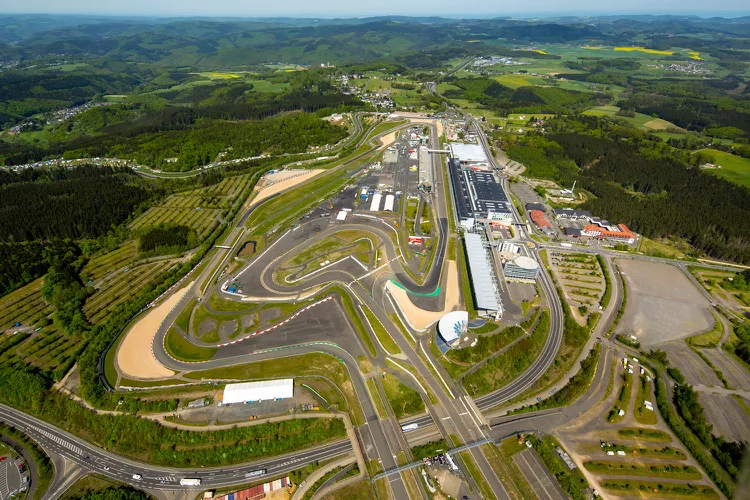Summary
The Nürburgring is a captivating 14 miles of winding, narrow country roads that was once the most exhilarating and dangerous motor racing track in history. Due to high safety concerns, the track was deemed too perilous for competitive racing; however, you can still experience it at high speeds in your own vehicle.
The Nürburgring, often referred to as Nuerburgring if the special character is not available, is famous for being the site of the near-fatal crash involving Austrian racing legend Niki Lauda during the 1976 German Grand Prix, a moment immortalized in the 2013 film Rush.
Driving Your Own Car
The Nürburgring offers various configurations, yet only two versions are typically of interest to visitors:
- the classic 14-mile track, known as the ‘Nordschleife’
- the contemporary Grand Prix track
Green Hell Driving Days
Jackie Stewart famously dubbed the Nürburgring as “The Green Hell,” a term harnessed for the track’s Green Hell Driving Days. The primary distinction between these days and the regular tourist rides is the available driving hours. Standard tourist rides occur only for a few hours (generally in the evening), while the biannual, three-day Green Hell Driving Days permit you to drive throughout the day for the event’s entirety. If you prefer not to drive, several co-pilot ride options are available.
Learn to Drive Safely
If you want to enhance your driving skills, consider the Nürburgring Driving Safety Center. This one-day intensive driving course costs between 130-170 Euros, varying by day and season. Instructors provide valuable tips on mastering vehicle control, offering essential insights applicable both on the racetrack and the autobahn.
Hiking Opportunities
Interestingly, you do not need a car to appreciate the beauty of the Nürburgring. Numerous hiking trails traverse the scenic area surrounding the track, making it accessible for outdoor enthusiasts.
How to Get There
The Nürburgring is situated approximately 90 km southwest of Cologne and 60 km northwest of Koblenz. The nearest airports include Köln Bonn (80 km) and Düsseldorf (120 km). Ensure you follow directions to Nürburg instead of Nürnberg when planning your journey.
History of Nürburgring
Germany’s Nürburgring was inaugurated on June 18th, 1927, as The Nürburg-Ring, featuring a thrilling 14-mile racetrack with 172 corners, far too many for any driver to memorize completely. This complexity allowed exceptional race drivers to display remarkable feats of skill—if they dared.
Consider Juan Manual Fangio as a prime example. After losing the lead due to a brutal pit stop at the end of the 1957 German Grand Prix, he remarkably broke the lap record by 12 seconds on three consecutive laps, regaining the lead and winning the race. He retired from racing a year later, reflecting, “I believe that on that day in 1957 I finally managed to master the Nürburgring, making those leaps in the dark on those curves where I had never before had the courage to push things so far.” The Nürburgring stands as a unique racetrack unlikely to be paralleled in the future.




